The European Bank for Reconstruction and Development (EBRD) and the Green Economy Financing Facility (GEFF Serbia Leasing) held a National Workshop on Gender Equality.
GEFF Serbia Leasing aims to reduce gender disparities and improve women’s access to funding for climate change-related projects, thus contributing to women’s greater involvement in the green economy.
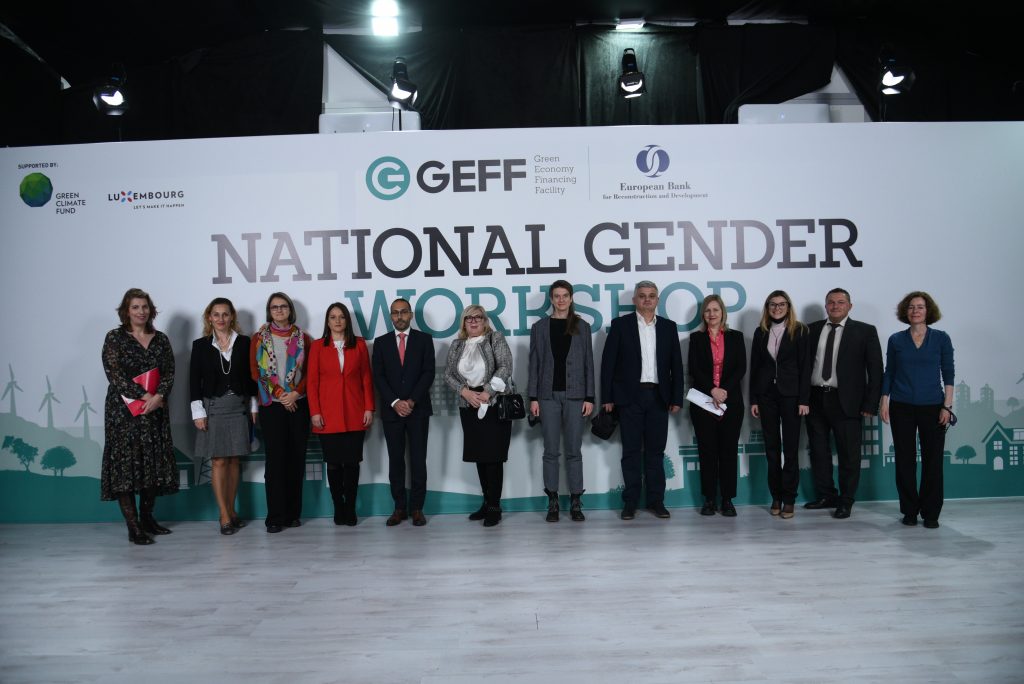
The conference was opened by Zorana Mihajlović, PhD, Minister of Mining and Energy and President of the Coordination Body for Gender Equality of the Republic of Serbia, who pointed out that progress has been made regarding the inclusion of women, and that there is still a lot to do ahead of us.
“If we look at the statistics, we cannot be satisfied with the gender equality conditions, nor that we have managed to include women in energy and green transition segments. However, this does not mean that the first steps have not been taken to involve women in the green transition. New laws have been passed, the most important of which is the Law on Renewable Energy Sources, which enables the creation of equal conditions for men and women. Today, 32 percent of all workers in the field of renewable energy sources are women, which is better than in other energy segments, but the situation is far from equal,” said Minister Mihajlović, calling on all institutions to jointly create conditions for equal participation of women and men in the Green Agenda.
In her introductory speech, Aleksandra Vukosavljević, EBRD Director of the Financial Institution for the Western Balkans and Eastern Europe, briefly presented the focus of investments that GEFF and EBRD provide to companies in Serbia that are committed to transforming their operations in the direction of the green transition.
“Through GEFF Leasing, the EBRD is teaming up with its donors to provide investment and technical support to our local financial institutions and leasing companies to enable companies to access high-performance green technology. To this end, GEFF Leasing supports companies in Serbia with procuring equipment that will have these performances and enable the transition to the green economy that will reduce carbon dioxide emissions by reducing the greenhouse effect and will be climate sustainable. The goal of all activities that GEFF undertakes is to improve the quality of life of people in Serbia,” concluded Ms Vukosavljević.
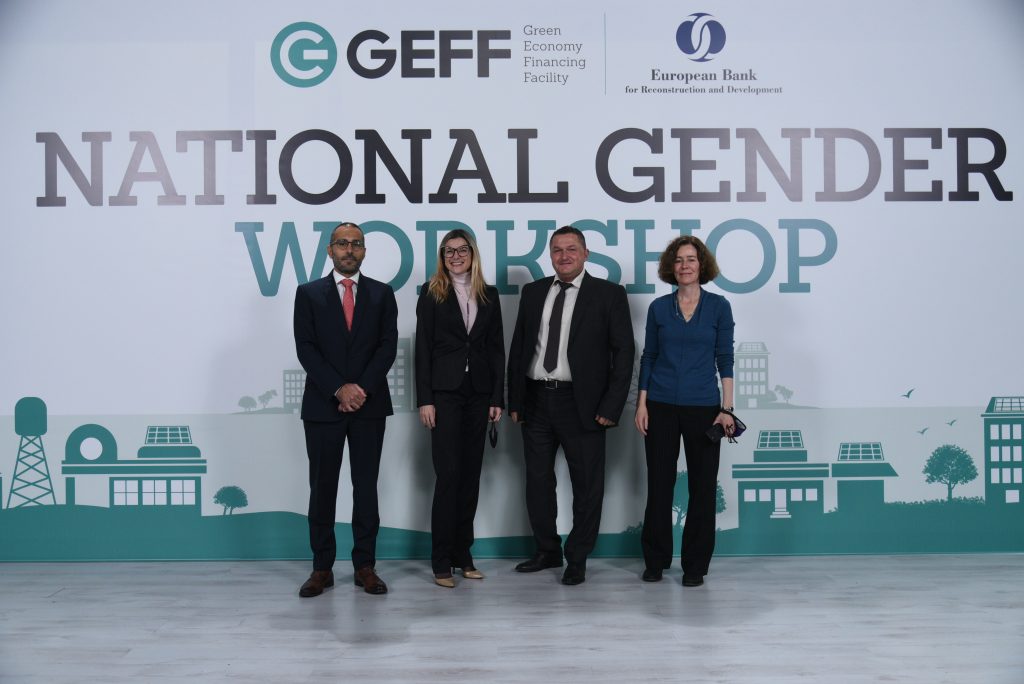
Christophe Zeeb, Luxembourg’s representative on the EBRD’s Board of Directors, pointed out that Luxembourg provides great support to the projects that GEFF is preparing.
“Luxembourg has been trying for years to facilitate access to finance for economically green projects. We have been trying for a year to influence and improve gender equality with this type of financing. After we have achieved significant success in this, there is still a lot to be done in this area. The research that we are going to present will show the great progress that Serbia has made in this field. At the same time, we will be able to use these results to better target future investments,” Mr Zeeb pointed out
We had the opportunity to hear an overview of the main findings of the gender equality research of GEFF Leasing in Serbia from Marija Babović, PhD and an expert on gender equality at GEFF Serbia Leasing, who pointed out that women’s access to activities dedicated to climate change is very unfavourable.
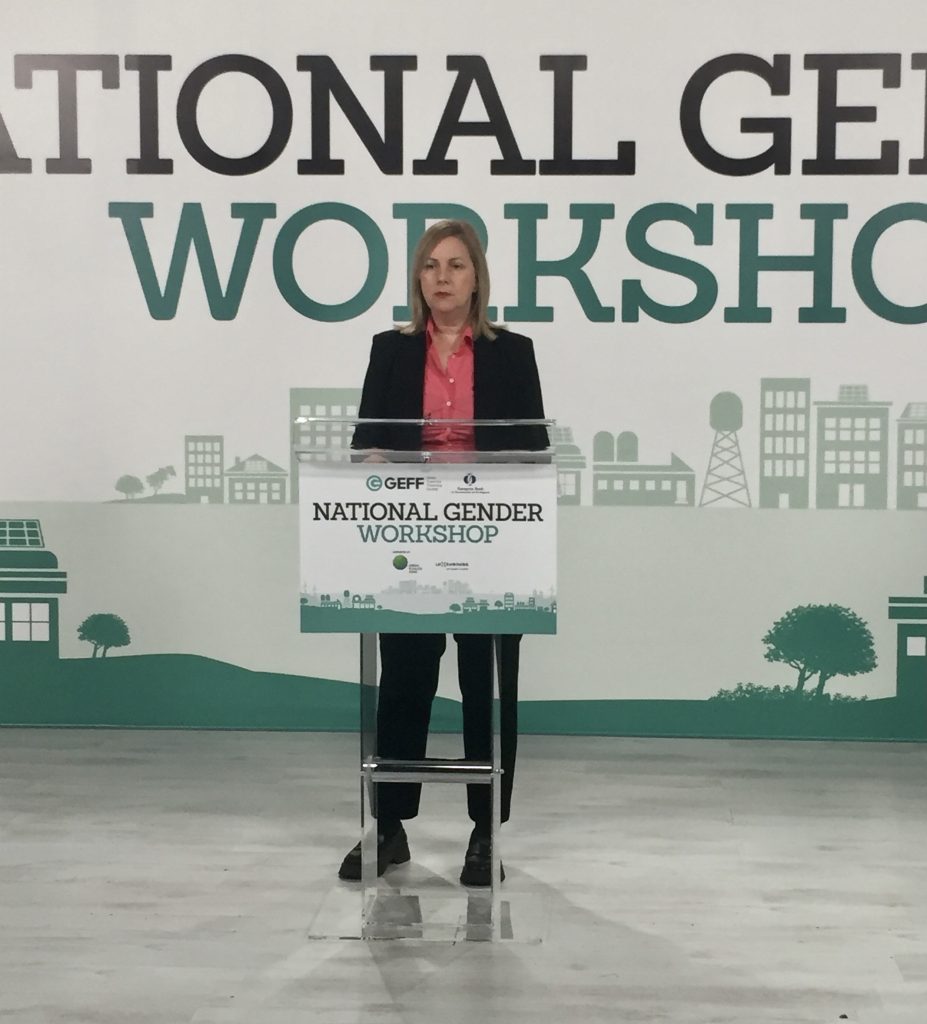
“Research has been conducted on the state of gender equality and climate change, to monitor how green financing contributes not only to the improvement of business but also to gender equality in these processes. There are some positive trends, but they are very slow and will take a long time if they continue at the current pace. As for economic activity, although it is improving, the situation is not optimal. Less than a third of the business is owned and run by women. Less than 20 percent of women hold senior management positions in companies. Also, the research shows that businesses run by women are very specific and very concentrated in narrow sectors, most often micro-business and focused towards local markets, thus making them particularly vulnerable. A very important finding is that women’s entry into business is most often motivated by necessity, i.e. due to job loss or inability to find employment. Women in Serbia have fewer chances to get involved in those activities that enable the reduction of harmful effects on climate change,” said Ms Babović.
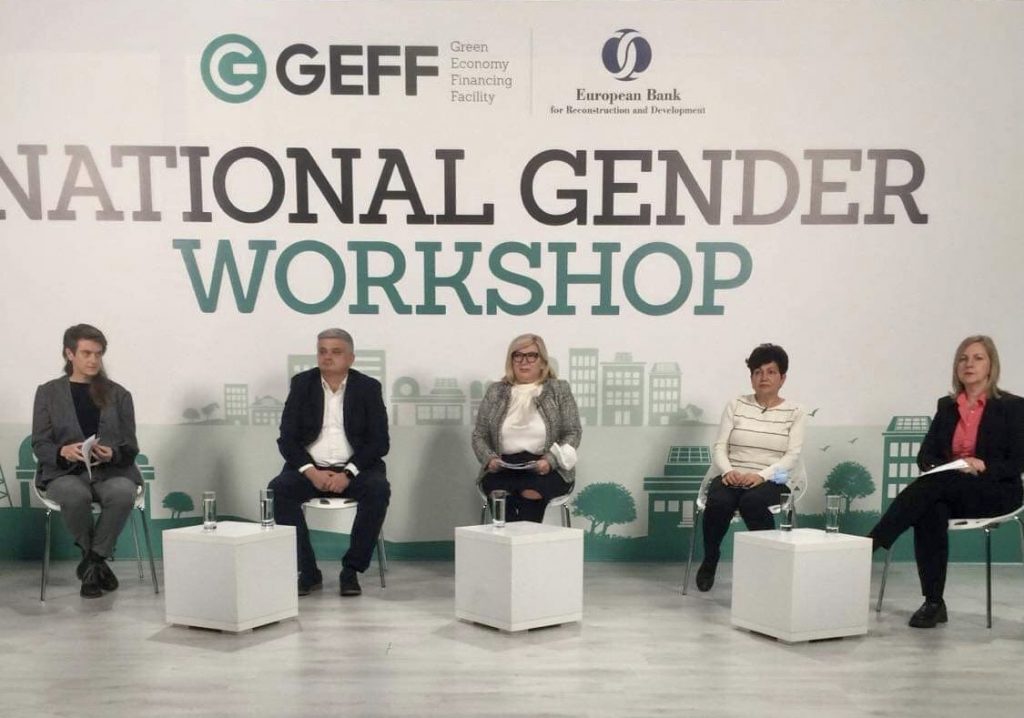
“Women in business: how to move towards the green economy – opportunities and obstacles” was the first panel of today’s workshop in which the panelists shared their personal experiences in developing their businesses, as well as the obstacles they encountered.
Ana Džokić, the co-founder of Elektropionir Cooperative, pointed out that women unite mostly out of necessity.
“The cooperative, like most female-run businesses, was founded out of necessity. At that time, there was no possibility for households that wanted to produce electricity on their roofs to do so and to direct excess electricity to the grid. Eight people got together, with the desire to empower households, produce electricity and send it forward. For now, the obstacles are mostly legal, but also the fact that cooperatives are historical postulates and as such, unrecognizable on the market. There are currently two energy cooperatives in Serbia, one of which operates under the auspices of the European Cooperative Association. Germany is a successful example, where 25 percent of energy is produced by households, under the auspices of local cooperatives, “said Ms Džokić.
Milena Puača, General Manager of Arum Deč (beneficiary of GEFF Serbia Leasing), used a personal example to show the struggle that over half of the companies in Serbia have.
“The company was founded by my husband in 1996, and the main activity was the import of seed potatoes. In 2008, we jointly came up with an idea to get involved in recycling. We buy used cooking oil from restaurants, foils, glass, metal and paper. We sign a contract with each client, based on which we pay them after taking over the waste. However, the situation is such that the company is usually recording loss and every year after we sum up everything, we contemplate closing it. The most difficult situation is with oil, which after purification, is disposed of in companies that produce biodiesel. Our company is surviving by taking out loans and without adequate help from state institutions,” pointed out Mrs Puača.
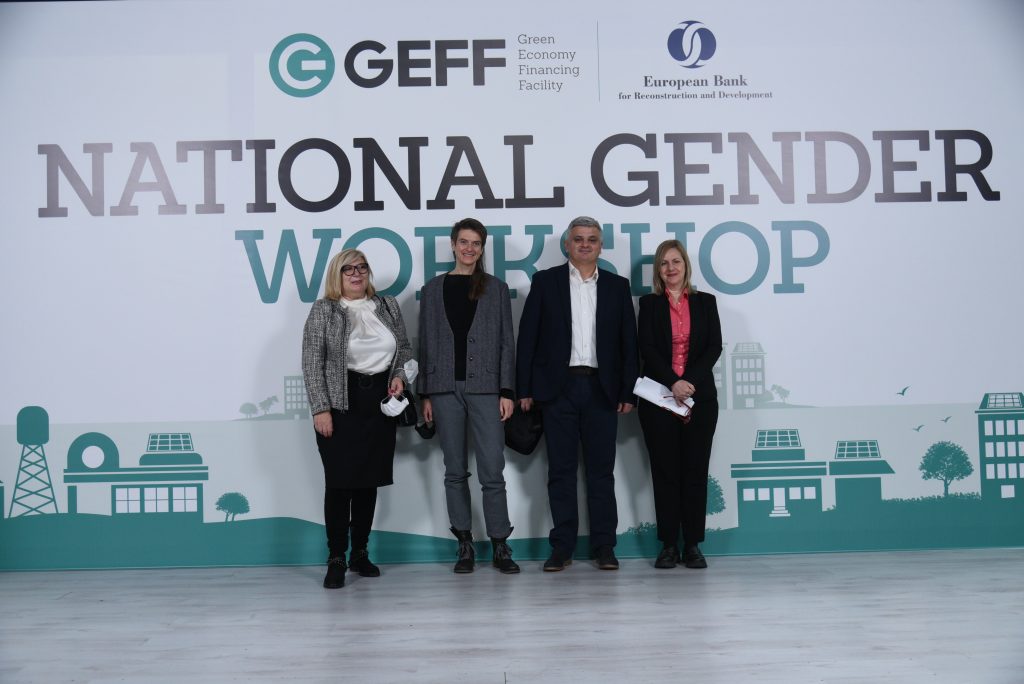
Vidosava Džagić, Assistant Director, Chamber of Commerce and Industry of Serbia (PKS) – Belgrade Chamber of Commerce (PKB), cites the rules that govern the market, i.e. the way to getting a job, as one of the reasons why women are focused on certain sectors.
“PKS is already working intensively on certain solutions. Green transition is a process that begins with raising awareness, improving knowledge and transfer of new technologies, but also strengthening the resilience of the most vulnerable companies, i.e. micro, small and medium-sized enterprises. Research conducted by PKB shows that these companies are very sensitive to the environment, both nationally and locally. These companies mostly depend on the availability of electricity, the Internet, telecommunications and water, and the smaller and less developed the local environment, the harder it is. Every second survey respondent stated that they see recovery through improving the quality and safety of products and services and the implementation of smart and green technologies,” Ms Džagić added.
Igor Urošević, from Teknoxgroup, presented the company’s business and new plans.
“As a manufacturer of construction machinery, the company has a division that deals with waste preparation, which involves gas engines that use produced biodiesel and a division that deals with solar energy, i.e. the production of solar panels. The importance of new machines for reducing pollution is especially highlighted. Gas engines are important. They use biomethane or biogas, which is obtained by processing waste from farms and agricultural areas. Combustion can create electricity. At the moment, our company is working on the opening of new landfills, i.e. our machines will be part of these projects,” said Mr Urošević.
“Financial framework: opportunities to support a more inclusive and greener business environment” was the second panel in which experts in this field gave guidelines and the path that companies should take in order to turn to the green economy.
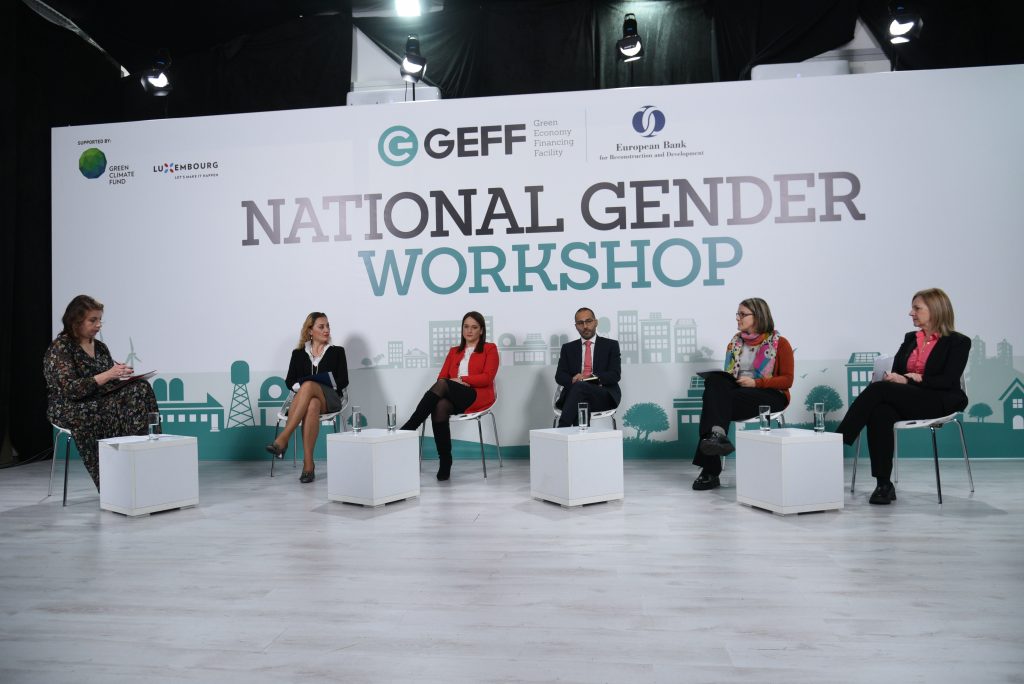
Ana Milić, General Manager, UniCredit Leasing (Partner Financial Institution of GEFF Serbia Leasing) pointed out that financial institutions, local banks and financial leasing are key factors for the realization of the green transition process.
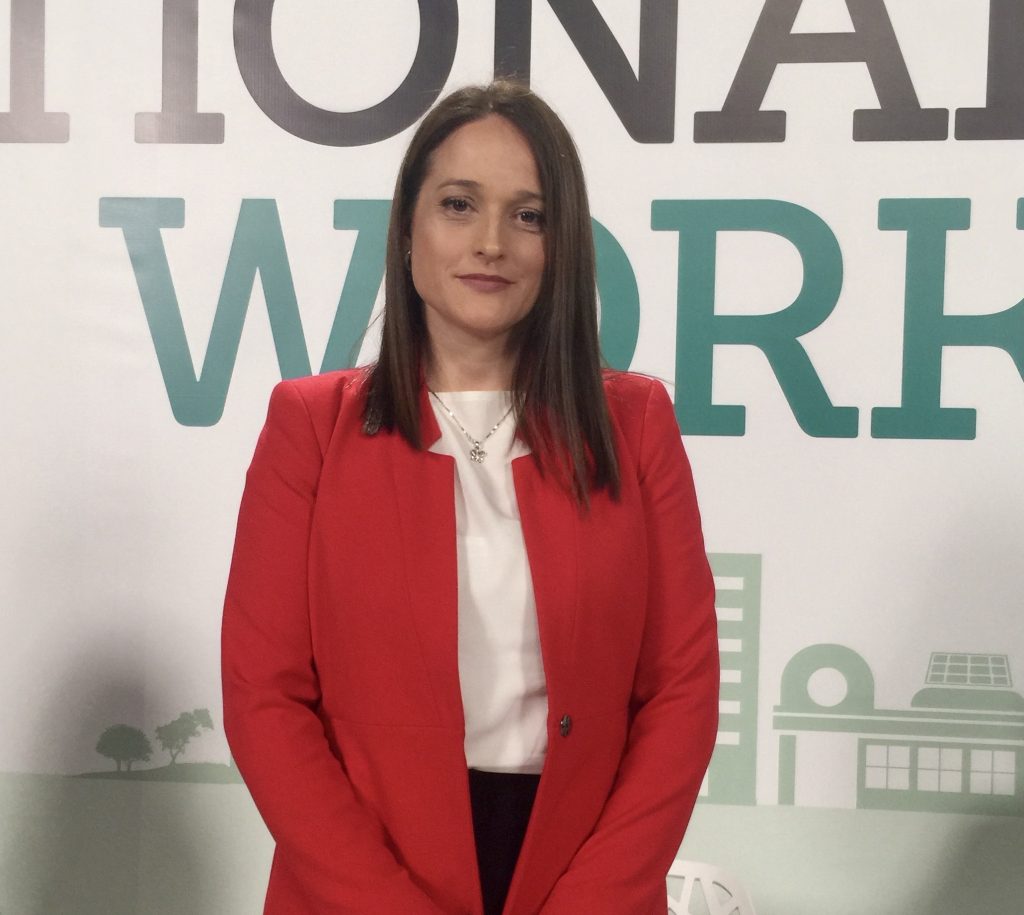
“The prerequisite for the green transition is to be strategically committed to the green economy, for the company to participate very actively in it and disseminate those values among employees. As a financial institution, we have an advisory role, which is very important for finding the optimal way of financing business transformation, but funding sources remain a challenge. That is why there is cooperation with international financial institutions. The combination of expertise, strategic commitment and certain sources of special funding from financial institutions are key to further progress and the green transition,” Ms Milić concluded.
Sladjana Sredojević, PhD, head of the Bank Training Centre at the Association of Serbian Banks, emphasized the readiness of the banking sector for the green transformation.
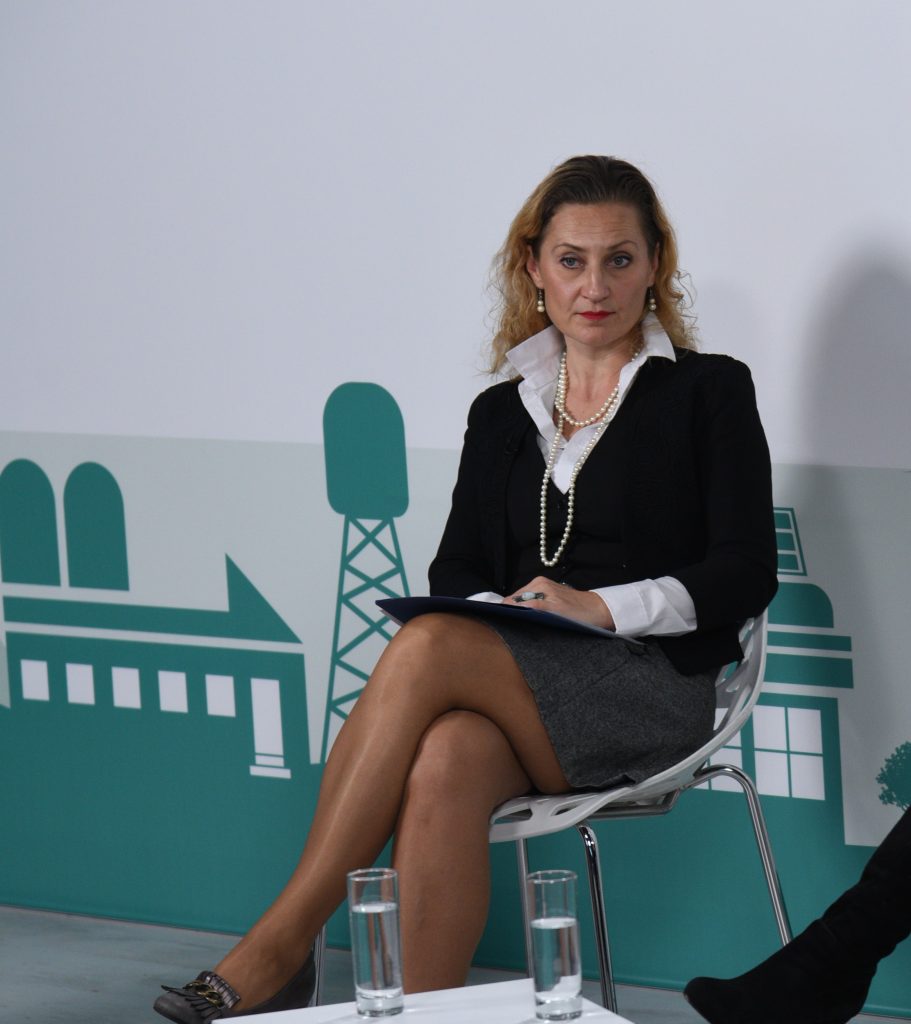
“In addition to the well-known direct financial support intended for financing projects with a strong environmental and social impact, sustainable financing will introduce new financial instruments. For example, green bonds are a relatively new and fast-growing phenomenon in international financial markets. Our country also recently issued the first green financial instrument – the first green bond. So, it is quite certain that the domestic banking and financial market will expand its range of loans and other financial products that support the transformation towards the circular and green economy,” Ms Sredojević pointed out.
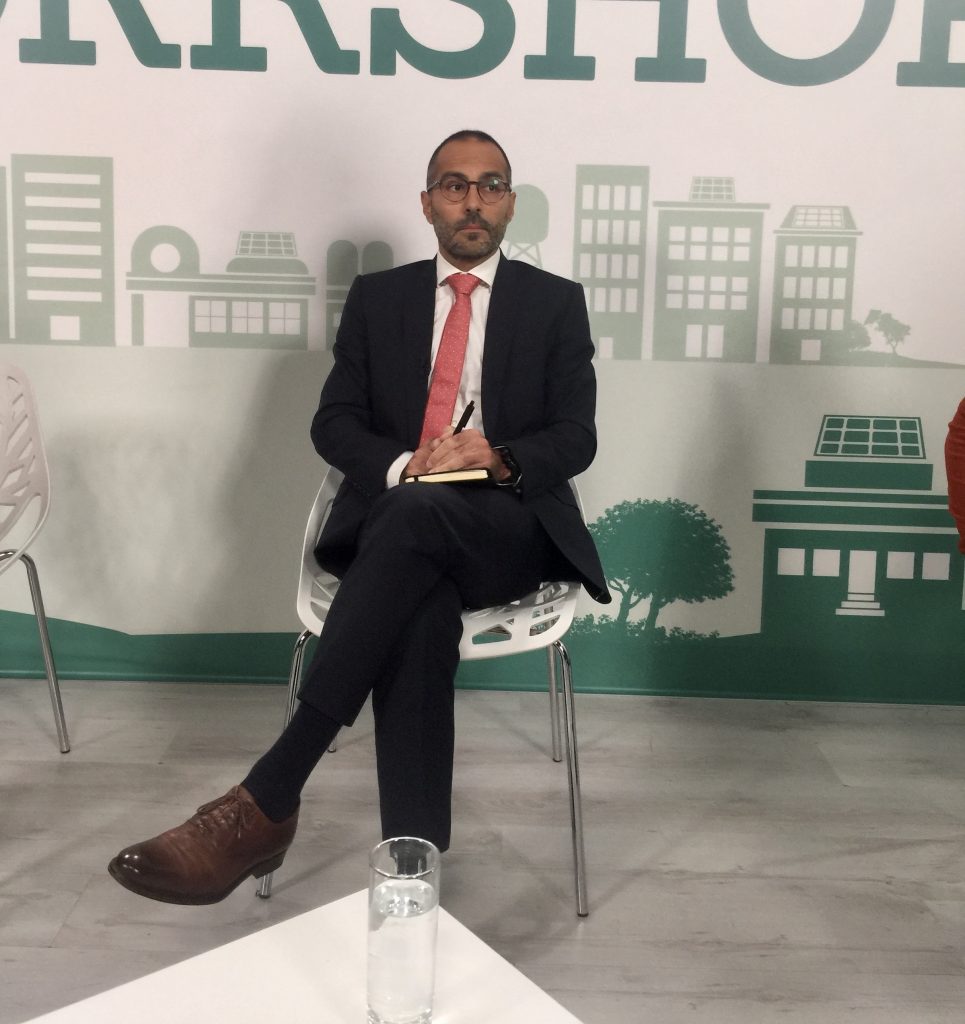
Aleksandar Randjelović, the Leasing Expert at GEFF Serbia Leasing, said that women’s access to green transition projects remains difficult.
“Women have difficult access to funding for their businesses and green projects. Leasing is a financial instrument that can prove that financing green projects while adhering to gender equality, can go hand in hand,” Mr Randjelović added.
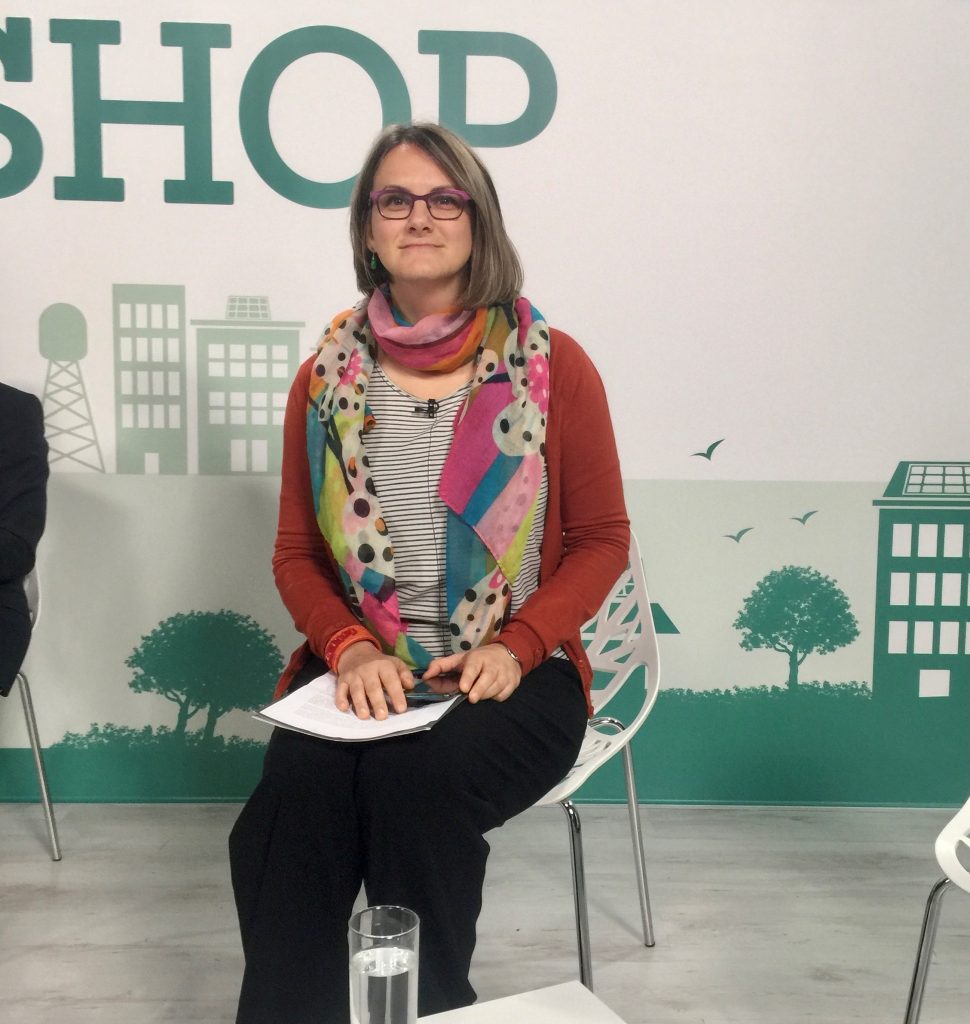
Olja Janković Leković, the coordinator of the GRB programme, UN Women, points out that gender equality should be at the centre of all policies and tools.
“The UN is trying to put people, be they men or women, at the centre of all policies and funding. This area is new for all of us, and it is only now gaining in importance globally. Female-run businesses have been hit hard since the onset of the pandemic, with the relevant measures not being tailored to micro and small businesses. Women’s cooperatives can be important actors, they work very hard in the field and are very important. Gender-responsive budgeting is important, and the support of the Ministry of Environmental Protection to women’s businesses in the segment of the green economy is a good example in Serbia,” said Ms Janković Leković.
Sunita Pitamber, Director of Gender and Inclusion for Access to Infrastructure and Green Economy Sector, closed today’s workshop and concluded that through various programmes and approaches, the EBRD has been actively promoting both gender equality and the green economy.
“While strongly focusing on the private sector, the EBRD has the chance to influence and promote business opportunities for women entrepreneurs in the green transition. At the moment, through GEFF, we have launched a gender-responsive approach in as many as 10 countries. With this approach, we will have the opportunity to get acquainted with the different approaches that countries have to gender equality and climate awareness,” Ms Pitamber concluded.